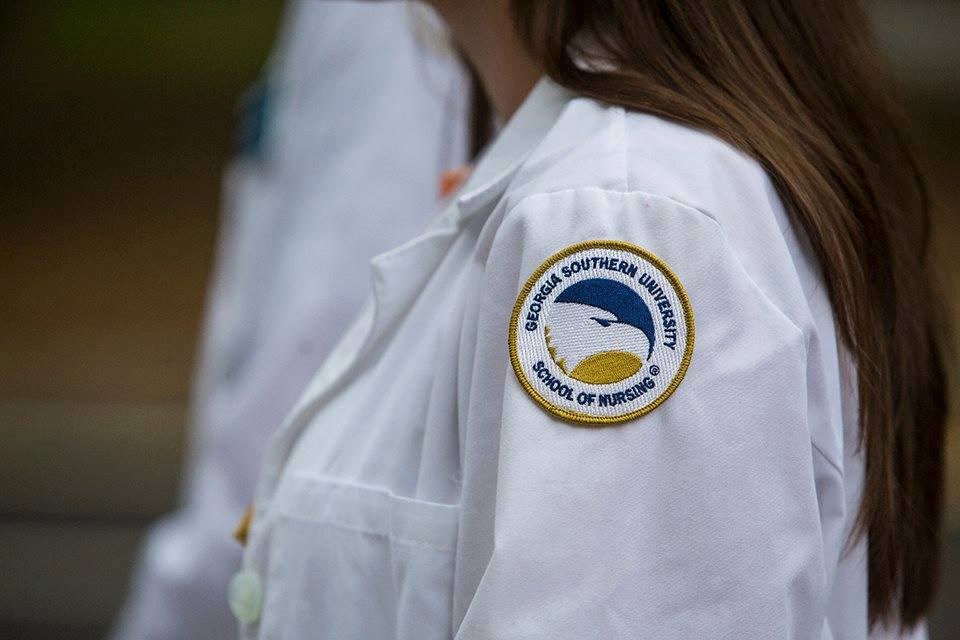The state of Georgia is ranked in the lower one-third of the nation for late or no prenatal care. Also in the state of Georgia, 82 counties have no OB/GYN and 65 counties have no pediatrician. This directly impacts healthcare outcomes for women and children in the state.
Georgia Southern University’s School of Nursing’s Marian Tabi, P.h.D., Tiffany Keshwah, DNP, APRN, CPNP-AC and Alan Skipper, P.h.D. received a grant of $2.57 million from the Advanced Nursing Education Workforce Program.
The Advanced Nursing Education Workforce (ANEW) Program works to increase the number of primary care nurse practitioners, clinical nurse specialists and certified nurse midwives who are trained and prepared to provide primary care services, mental health and substance use disorder care, and/or maternal health care. Grants support the training and graduation of advanced practice registered nursing (APRN) students and trainees in these disciplines.
“We’ve had great success with HRSA grants. This award marks the fourth ANEW grant we have received as well as the largest dollar amount we have received. We have been awarded a total of five HRSA grants so we are proud of our long-standing record of excellence,” said Dean of the Waters College of Health Professions Whitney Nash, P.h.D.
The grant will aid in the preparation of nurse practitioner students to provide competent behavioral health services to rural and underserved areas through tailored coursework and longitudinal clinical placements (LCP) within partner Federally Qualified Health Centers (FQHCS). HRSA developed grants like ANEW in response to the critical global shortage of primary care physicians and practitioners in rural areas. Most of Georgia qualifies as rural and/or underserved.
“We are very grateful and thankful for this grant. I see it as a big win for the school of nursing and for our students,” Tabi, one of the awardees, said. “Particularly for our NP students, finding clinical placement is really a big deal as we continue to grow in numbers. This grant allows us to establish academic partnerships with FQHCS, allowing our students to have secured preceptorship.”
Awardees provide tuition and other eligible support to trainees, build academic-clinical partnerships to facilitate clinical training, and continue to develop and sustain clinical faculty and preceptors as needed. Applicants are strongly encouraged to recruit students/trainees and faculty from diverse populations. Funding preference is given to eligible entities that train APRNs students to practice in underserved and rural communities or state and local health departments.
“This reinforces why Georgia Southern’s high impact practices are important,” said Provost and Executive Vice President of Academic Affairs Carl Reiber, Ph.D. “Given the state’s statistics in coverage of healthcare services, this grant will have a lasting and profound impact on the lives of not only our graduates, but the communities they serve.”
Keshwah, another awardee, shed light on how the grant has impacted her as a student and her intentions on how she plans to make a difference in the nursing profession.
“Upon receiving the HRSA ANEW grant, our short term goals include pairing students with clinical sites that they desire to work in post-graduation, giving both the student and the facility a jump start on training, in effort to allow for a smooth transition into a nurse practitioner role post-graduation,” said Keshwah. “Our long term goals include improving access to care to many counties that are considered healthcare deserts. The goal is to offset the financial burden to students pursuing the role of a nurse practitioner while also offsetting the financial burden of onboarding new providers at rural clinics, thus increasing their provider availability and ultimately increasing access to care to the community.”
As the largest center of higher education in southeast Georgia, Georgia Southern’s School of Nursing includes a family nurse practitioner program that delivers world-class education and clinical training to students who become providers of care, increasing access to healthcare in Georgia.




